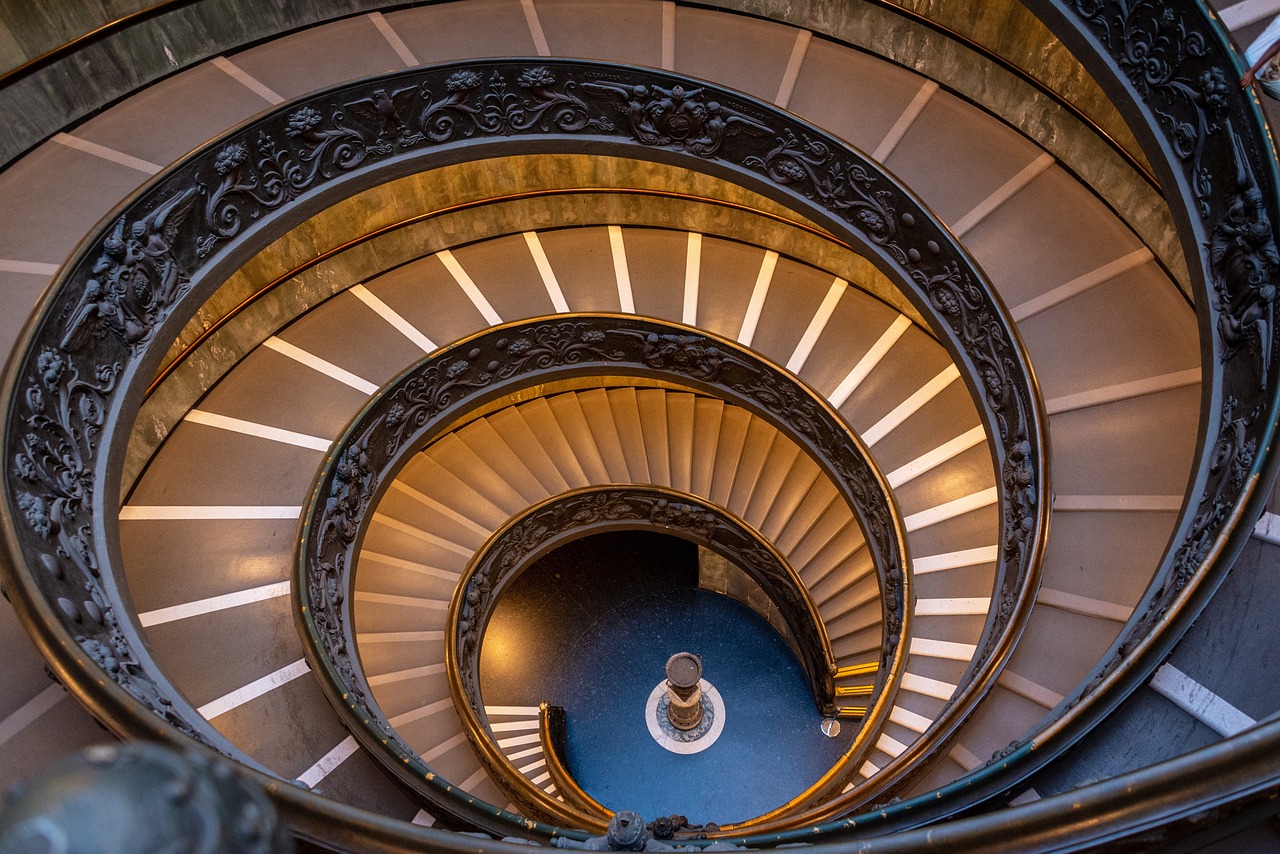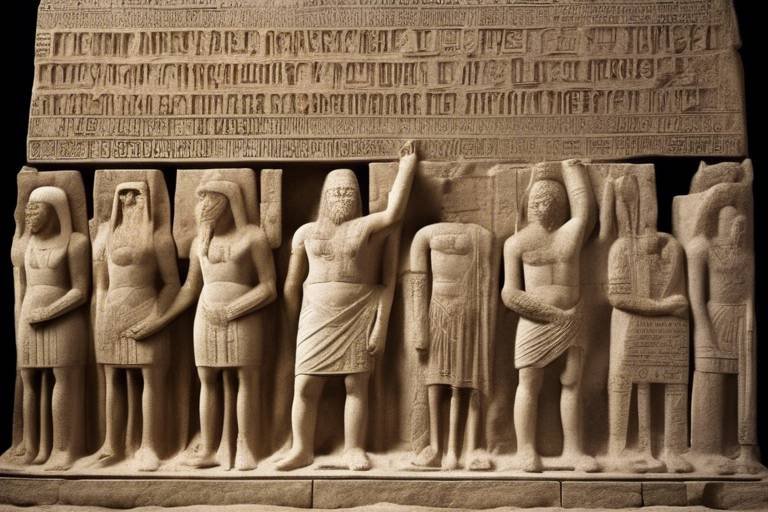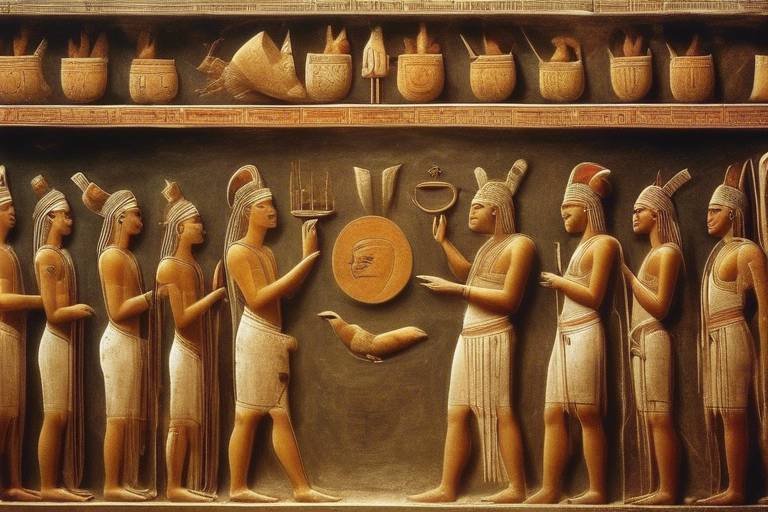Exploring the History of Famous Libraries
Libraries stand as timeless monuments to human knowledge, each with a unique story woven into the fabric of history. These grand repositories of wisdom have witnessed the rise and fall of civilizations, preserving the collective heritage of humanity across the ages. From the majestic Library of Alexandria to the modern marvels of the New York Public Library, these institutions have shaped the intellectual landscape of their respective eras, leaving an indelible mark on culture and scholarship.
As we embark on a journey through the annals of time, we encounter the illustrious Library of Alexandria, a beacon of enlightenment in the ancient world. This legendary institution housed a vast collection of scrolls and manuscripts, drawing scholars and thinkers from far and wide to partake in its intellectual riches. Despite its tragic demise, the legacy of the Library of Alexandria continues to inspire awe and curiosity, symbolizing the pursuit of knowledge against the backdrop of history's tumultuous currents.
Stepping into the hallowed halls of the Bodleian Library in Oxford, England, one is greeted by the echoes of centuries past. Originally founded as a modest collection in the 14th century, the Bodleian Library has evolved into a renowned center of learning, nurturing generations of academics and researchers. Its architectural splendor mirrors the enduring quest for knowledge, embodying the essence of scholarly pursuit that transcends time and space.
The New York Public Library stands as a testament to the enduring power of literature and culture in the heart of bustling Manhattan. With its iconic lion statues guarding the entrance and vast collections spanning diverse genres, this institution serves as a sanctuary for book lovers and scholars alike. The grandeur of its architecture mirrors the richness of its holdings, inviting visitors to immerse themselves in a world of literary treasures and intellectual exploration.
Journeying to the Vatican Library, we are transported to the heart of the Catholic Church's intellectual legacy. Housing rare manuscripts and priceless artifacts, this repository of knowledge has played a pivotal role in shaping religious scholarship and theological discourse. The Vatican Library stands as a testament to the enduring influence of faith on the pursuit of wisdom, bridging the realms of spirituality and academia in a harmonious union.
Turning our gaze to the British Library, we behold a treasure trove of literary wonders that span the breadth of human creativity. Home to iconic works such as the Magna Carta and Shakespeare's First Folio, this institution stands as a guardian of global knowledge and cultural heritage. Its role in preserving the written word echoes across time, reminding us of the power of storytelling to transcend boundaries and connect generations.
Delving into the vast expanse of the Library of Congress, we encounter the sheer magnitude of human creativity and innovation. As the largest library in the world, its collections span a diverse array of subjects, reflecting the multifaceted tapestry of human experience. Serving as a national repository of knowledge, the Library of Congress embodies the collective wisdom of a nation, inviting visitors to explore the depths of human ingenuity and imagination.
Exploring the Bibliothèque Nationale de France, we are captivated by the architectural splendor and cultural richness of France's national library. With its extensive collections and unwavering commitment to preserving the country's intellectual heritage, this institution stands as a guardian of French culture and history. The Bibliothèque Nationale de France serves as a testament to the enduring legacy of literature and art, weaving a narrative of creativity and innovation that resonates across borders and time.
Lastly, we turn our attention to the Bodleian Libraries in Oxford, a network of scholarly havens that embody the spirit of academic excellence and innovation. With their rare holdings and cutting-edge approaches to research, these libraries continue to shape the landscape of academia in the digital age. The Bodleian Libraries stand as beacons of knowledge and discovery, inviting scholars and enthusiasts to partake in the ongoing quest for truth and understanding.

The Library of Alexandria
The Library of Alexandria holds a mythical status in the annals of history, revered as a beacon of knowledge and scholarship in the ancient world. Established in the 3rd century BC by Ptolemy I Soter, this grand institution aimed to collect all the knowledge of the world under one roof, symbolizing the intellectual prowess of the Hellenistic era. Situated in the heart of Alexandria, Egypt, the library quickly became a center of learning, attracting scholars, philosophers, and scientists from far and wide.
With an ambitious mission to gather scrolls from across the known world, the Library of Alexandria housed a vast collection of manuscripts, treatises, and scientific works, making it the most significant repository of knowledge in antiquity. Scholars such as Euclid, Archimedes, and Eratosthenes frequented its halls, contributing to the advancement of various fields of study and shaping the intellectual landscape of the ancient Mediterranean.
However, the library's fate took a tragic turn with multiple accounts attributing its destruction to fires, conflicts, and political upheavals over the centuries. The burning of the Library of Alexandria has become a symbol of the loss of knowledge and the fragility of human achievement, leaving behind a legacy shrouded in mystery and speculation.
Despite its eventual demise, the Library of Alexandria remains a symbol of intellectual ambition and the pursuit of knowledge, inspiring generations of scholars and thinkers to cherish and preserve the wealth of human wisdom for posterity. Its legacy serves as a poignant reminder of the importance of libraries as custodians of civilization's collective memory and as guardians of the treasures of the past.

The Bodleian Library
The Bodleian Library, located in Oxford, England, stands as a testament to the enduring legacy of knowledge and scholarship. Established in 1602, the Bodleian Library has evolved from its humble beginnings to become one of the most prestigious research institutions in the world. Its architectural grandeur, with buildings dating back centuries, reflects the rich history and academic tradition it embodies.
Home to over 13 million items, the Bodleian Library houses a vast collection of rare manuscripts, ancient texts, and modern publications. From priceless artifacts like the Gutenberg Bible to original works by Shakespeare, the library's holdings span a wide range of subjects, making it a treasure trove for researchers and scholars alike.
Stepping into the Bodleian Library is like embarking on a journey through time, where each book, each document, whispers stories of the past and insights into the future. The library's role in shaping academia over the centuries cannot be overstated, as it continues to inspire generations of thinkers and innovators.
Moreover, the Bodleian Library's commitment to digital innovation has ensured its relevance in the modern age. By digitizing its collections and embracing new technologies, the library has made its resources more accessible to a global audience, breaking down barriers to knowledge and fostering intellectual exchange.
In conclusion, the Bodleian Library stands as a beacon of intellectual curiosity and academic excellence, a place where the past meets the present and the future unfolds through the pages of its books. Its timeless charm and scholarly significance make it a must-visit destination for anyone passionate about the pursuit of knowledge.

The New York Public Library
The New York Public Library stands as a beacon of literary culture in the bustling heart of Manhattan, captivating visitors with its iconic architecture and vast collections. Founded in 1895, this esteemed institution has become a symbol of knowledge and learning, attracting scholars, researchers, and book lovers from around the globe.
Designed by architects Carrère and Hastings, the library's majestic Beaux-Arts facade welcomes visitors into a world of literary wonders. Its iconic lion statues, Patience and Fortitude, stand guard at the entrance, symbolizing the virtues essential for any avid reader.
Within its walls, the New York Public Library houses over 53 million items, including rare manuscripts, ancient maps, and first editions of literary masterpieces. From the Gutenberg Bible to original manuscripts by renowned authors, the library's collections offer a glimpse into the evolution of human knowledge and creativity.
Not only does the New York Public Library serve as a repository of knowledge, but it also plays a vital role in promoting literacy and education in the community. Through its extensive outreach programs, exhibitions, and educational initiatives, the library enriches the lives of New Yorkers of all ages and backgrounds.
Moreover, the New York Public Library has become a cultural hub, hosting literary events, author talks, and exhibitions that celebrate the diversity and richness of the written word. From children's storytelling sessions to scholarly lectures, the library offers a vibrant space for intellectual exchange and artistic exploration.
As a cherished landmark in the city that never sleeps, the New York Public Library continues to inspire and educate generations of readers, preserving the past and shaping the future of literature and scholarship.

The Vatican Library
Delve into the rich history of the Vatican Library, an institution deeply intertwined with the intellectual legacy of the Catholic Church. Established in the 15th century by Pope Nicholas V, the Vatican Library has evolved into a treasure trove of rare manuscripts, incunabula, and ancient texts, serving as a vital resource for scholars and researchers worldwide.
The Vatican Library's architectural splendor mirrors the grandeur of the Vatican City itself, with its majestic halls and ornate reading rooms exuding a sense of reverence for knowledge and history. Housing over 75,000 codices and 1.1 million printed books, the library stands as a testament to the enduring pursuit of wisdom and understanding.
Among its most prized possessions are ancient manuscripts such as the Codex Vaticanus and the Vatican Virgil, along with invaluable collections of maps, prints, and archival materials documenting centuries of intellectual inquiry and artistic achievement. The library's role as a guardian of cultural heritage and religious scholarship is unparalleled, making it a beacon for those seeking to explore the intersection of faith, history, and learning.
Stepping into the Vatican Library is akin to embarking on a journey through time, where each volume and artifact holds a piece of humanity's collective wisdom and creativity. From illuminated manuscripts to scientific treatises, the library's holdings offer a glimpse into the diverse tapestry of human thought and expression, inviting visitors to immerse themselves in a world where past, present, and future converge.
As a bastion of intellectual inquiry and spiritual reflection, the Vatican Library continues to inspire generations of scholars, theologians, and artists, fostering a deep appreciation for the power of ideas and the enduring legacy of knowledge. Its enduring influence on academia and religious studies underscores the timeless importance of preserving our cultural heritage and embracing the intellectual riches of the past.

The British Library
The British Library, a venerable institution tracing its roots back to the British Museum Library, stands as a bastion of knowledge and a treasure trove of literary heritage. Housing an extensive collection of over 170 million items, it serves as a testament to the enduring power of human creativity and intellect. The library's architectural grandeur mirrors the richness of its contents, with iconic treasures such as the Magna Carta and Shakespeare's First Folio held within its walls.
Stepping into the British Library is akin to embarking on a journey through time, where centuries of human thought and expression converge in a harmonious symphony of knowledge. Its role in preserving global intellectual heritage is unparalleled, offering a sanctuary for scholars, researchers, and curious minds alike to delve into the annals of human achievement.
Moreover, the British Library's influence extends far beyond its physical walls, reaching into the digital realm with innovative approaches to scholarship and research. Embracing the challenges of the modern age, it continues to adapt and evolve, ensuring its relevance in an ever-changing world where information is both abundant and fleeting.

The Library of Congress
The Library of Congress stands as a beacon of knowledge and creativity, housing a vast collection that represents the cultural tapestry of the United States. Established in 1800, it has grown to become the largest library in the world, boasting over 171 million items in various formats, from books and manuscripts to maps and photographs.
At the heart of Washington, D.C., the Library of Congress serves as a vital resource for researchers, scholars, and the general public alike. Its mission goes beyond mere preservation; it aims to spark curiosity, inspire creativity, and foster a deeper understanding of American history and culture.
The library's diverse collections cover a wide range of subjects, from law and literature to science and music. Visitors can explore rare documents such as the Gutenberg Bible, Thomas Jefferson's personal library, and the contents of Abraham Lincoln's pockets on the night of his assassination.
Noteworthy is the Library of Congress's role as the official research arm of the U.S. Congress, providing valuable resources to lawmakers and their staff. It serves as a symbol of democracy's commitment to intellectual freedom, offering access to information that fuels informed decision-making and public discourse.
Moreover, the library's digital initiatives have expanded its reach globally, making millions of items accessible online. Through digitization efforts, the Library of Congress continues to adapt to the digital age while preserving its rich heritage for future generations.

The Bibliothèque Nationale de France
The Bibliothèque Nationale de France, also known as the National Library of France, stands as a majestic symbol of the country's rich cultural heritage and intellectual legacy. Founded in 1368 by Charles V, this prestigious institution has evolved over the centuries to become one of the world's foremost repositories of knowledge and scholarship. Its architectural splendor, with the iconic towers of the François-Mitterrand site in Paris, reflects the grandeur of its mission to preserve and promote French culture.
The library's extensive collections encompass a wide range of materials, including rare manuscripts, historical documents, prints, maps, and more. With over 40 million items in its possession, the Bibliothèque Nationale de France plays a crucial role in safeguarding the country's literary and artistic treasures for future generations. Scholars, researchers, and enthusiasts alike flock to its hallowed halls in search of enlightenment and inspiration.
Not only does the library serve as a guardian of France's past, but it also actively contributes to shaping its future. Through exhibitions, events, and educational programs, the Bibliothèque Nationale de France engages with the public and fosters a deeper appreciation for the nation's cultural heritage. Its commitment to digital initiatives ensures that these invaluable resources are accessible to a global audience, transcending physical boundaries and fostering intellectual exchange.
Stepping into the Bibliothèque Nationale de France is akin to embarking on a journey through time and space, where the echoes of centuries past mingle with the vibrant energy of contemporary scholarship. It is a place where history comes alive, where the written word transcends its physical form to ignite the imagination and stir the soul. The library stands as a testament to the enduring power of knowledge and the timeless allure of the written word.

The Bodleian Libraries
The Bodleian Libraries in Oxford represent a network of exceptional academic resources that have stood the test of time, evolving to meet the changing needs of scholars and researchers. With roots dating back to the 14th century, these libraries have expanded to encompass a wide array of specialized collections and archives, making them a cornerstone of intellectual inquiry and discovery.
One of the most notable aspects of the Bodleian Libraries is their commitment to preserving rare and unique materials that offer valuable insights into various fields of study. From ancient manuscripts to modern publications, the libraries house a diverse range of resources that cater to the academic pursuits of individuals from around the globe.
Moreover, the Bodleian Libraries serve as a hub for innovation and collaboration, providing a dynamic environment where ideas can flourish and knowledge can be shared. Through initiatives such as digital preservation and online access, these libraries continue to adapt to the digital age while upholding their traditional values of scholarship and research.
Visitors to the Bodleian Libraries are greeted with a sense of history and heritage, as the buildings themselves reflect centuries of academic excellence and cultural significance. The architecture of these libraries is not just a backdrop but an integral part of the scholarly experience, inspiring awe and reverence for the pursuit of knowledge.
In essence, the Bodleian Libraries stand as a testament to the enduring power of libraries as repositories of human creativity and intellectual achievement. By embracing tradition while embracing innovation, these libraries remain at the forefront of academic excellence, shaping the future of research and scholarship for generations to come.
Frequently Asked Questions
- What is the significance of the Library of Alexandria?
The Library of Alexandria was a renowned center of learning in the ancient world, housing a vast collection of scrolls and manuscripts that represented the pinnacle of knowledge at the time. It played a crucial role in preserving and disseminating intellectual works, influencing scholarship for centuries to come.
- What makes the Bodleian Library unique?
The Bodleian Library stands out for its rich history dating back to the 14th century, its impressive architecture, and its status as one of the oldest libraries in Europe. It is known for its extensive collection of rare books and manuscripts, making it a treasure trove for researchers and scholars.
- Why is the New York Public Library iconic?
The New York Public Library is iconic for its grand Beaux-Arts architecture, including the famous lion statues guarding its entrance. It holds a vast collection of books and resources, making it a cultural hub in New York City and a symbol of literary heritage.
- What sets the Vatican Library apart?
The Vatican Library is distinguished by its association with the Catholic Church and its extensive collection of rare manuscripts and artifacts. It serves as a repository of religious and scholarly works, reflecting centuries of intellectual and cultural heritage.
- How does the British Library contribute to global knowledge?
The British Library plays a vital role in preserving and promoting global knowledge through its diverse collection of over 150 million items. It houses significant historical documents such as the Magna Carta and works by renowned authors, making it a cornerstone of cultural heritage.
- What makes the Library of Congress notable?
The Library of Congress is notable for being the largest library in the world, with a vast collection spanning various subjects and formats. It serves as a key resource for researchers, policymakers, and the public, reflecting America's commitment to intellectual freedom and creativity.
- Why is the Bibliothèque Nationale de France important?
The Bibliothèque Nationale de France holds a significant place in French cultural heritage, housing a wide range of materials that reflect the country's intellectual legacy. Its architectural beauty and extensive collections make it a valuable resource for scholars and enthusiasts alike.
- What distinguishes the Bodleian Libraries network?
The Bodleian Libraries network in Oxford is known for its collective impact on academia, innovative approaches to research, and diverse range of rare holdings. It continues to adapt to the digital age while preserving its historical significance and commitment to advancing knowledge.



















